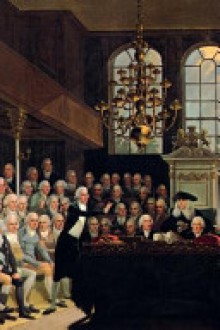The first volume of this biography, The Years of Acclaim, left Pitt at a peak in both home and foreign affairs. In 1789 he emerged triumphantly from the Regency crisis, and in policies commanded wide consent, his Parliamentary position was assured, and his financial and administrative reforms...
show more
The first volume of this biography, The Years of Acclaim, left Pitt at a peak in both home and foreign affairs. In 1789 he emerged triumphantly from the Regency crisis, and in policies commanded wide consent, his Parliamentary position was assured, and his financial and administrative reforms were proceeding steadily. He stood, one MP wrote, 'like Ajax, single and alone', and to Macaulay this was the time at which his fame and fortune reached their zenith.
Darker years, however, were to follow, and their opening phase is covered in this second of three volumes, which surveys the last period of peace and the first four years of war with France. They were not years in which Pitt maintained the run of success to which he was accustomed, or after a time could pursue his cherished reforms. They span in fact the dividing line, as it has generally been seen, between the two contrasting parts of his career, and lie between the early years of 'the wonderful youth' and the final period which, for all its weaknesses and failures, turned him into a symbol and a legend. In themselves they contributed little to his fame. But they were significant, leading as they did to an irreversible change in his outlook and methods.
The war itself, in this first, disappointing period, did not lack drama; at sea with the Glorious First of June, in the flow and ebb of West Indian operations, on the French coasts of Toulon and Quiberon, even in the Low Countries as the Duke of York's 'ten thousand men', after marching to and fro for two campaigns, retreated in a bitter winter to their expulsion from the continent. At home, the sometimes frightening surges of political and economic unrest, and the growing danger to the financial system which was Pitt's greatest pride, began to threaten his health and in some degree his innate optimism. By the end of 1796 he was looking anxiously for an acceptable peace.
Such pressures left him even less time than usual for social life. The pattern continued in essence much as before. Bound almost entirely now by Downing Street, the House of Commons and his retreats at Holwood and later Walmer, he remained within his old circle of intimates, with the notable addition of Canning.
As this volume closes, he embarked on his one serious approach to romance, an event which will be discussed in the next volume. But this would soon come to nothing, and his private life, while enlarging again slightly, would follow on familiar lines while the wars dragged on and became ever more grim.
show less

